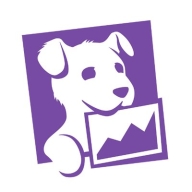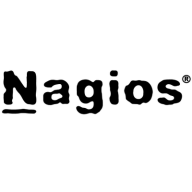

Datadog and Nagios Log Server compete in monitoring solutions. Datadog holds an edge in deployment ease and support, whereas Nagios offers extensive features for complex log handling.
Features: Datadog provides comprehensive cloud monitoring, integration capabilities, and real-time log analysis. Nagios Log Server delivers advanced log management, scalability, and custom alerts, catering to complex setups.
Room for Improvement: Datadog could enhance its APM capabilities, add more detailed logging, and refine its integration processes. Nagios Log Server would benefit from a better user interface, improved analytics, and more accessible deployment options.
Ease of Deployment and Customer Service: Datadog offers an easy SaaS deployment and responsive support. Meanwhile, Nagios Log Server requires more resources for on-premise deployment but provides robust documentation and reliable support.
Pricing and ROI: Datadog's flexible pricing supports quicker returns with lower operational costs. Nagios Log Server incurs higher initial costs but offers justified investment benefits with its extensive feature set for those needing detailed on-premise log management.
| Product | Market Share (%) |
|---|---|
| Datadog | 4.7% |
| Nagios Log Server | 0.8% |
| Other | 94.5% |


| Company Size | Count |
|---|---|
| Small Business | 80 |
| Midsize Enterprise | 46 |
| Large Enterprise | 99 |
Datadog integrates extensive monitoring solutions with features like customizable dashboards and real-time alerting, supporting efficient system management. Its seamless integration capabilities with tools like AWS and Slack make it a critical part of cloud infrastructure monitoring.
Datadog offers centralized logging and monitoring, making troubleshooting fast and efficient. It facilitates performance tracking in cloud environments such as AWS and Azure, utilizing tools like EC2 and APM for service management. Custom metrics and alerts improve the ability to respond to issues swiftly, while real-time tools enhance system responsiveness. However, users express the need for improved query performance, a more intuitive UI, and increased integration capabilities. Concerns about the pricing model's complexity have led to calls for greater transparency and control, and additional advanced customization options are sought. Datadog's implementation requires attention to these aspects, with enhanced documentation and onboarding recommended to reduce the learning curve.
What are Datadog's Key Features?In industries like finance and technology, Datadog is implemented for its monitoring capabilities across cloud architectures. Its ability to aggregate logs and provide a unified view enhances reliability in environments demanding high performance. By leveraging real-time insights and integration with platforms like AWS and Azure, organizations in these sectors efficiently manage their cloud infrastructures, ensuring optimal performance and proactive issue resolution.
Nagios Enterprises delivers official products, services, and solutions for and around Nagios – the industry standard in enterprise-grade IT infrastructure monitoring. With millions of users worldwide, Nagios is the undisputed champion in the IT monitoring space. Our team of dedicated professionals works to ensure total customer satisfaction with all the services we provide. Our extensive network of partners helps extend Nagios services and solutions to new organizations and markets worldwide to meet a variety of business needs. Nagios Enterprises was founded in 2007 by Ethan Galstad. Ethan created what would later become known as Nagios in 1999, and currently serves as the President of Nagios Enterprises.
We monitor all Log Management reviews to prevent fraudulent reviews and keep review quality high. We do not post reviews by company employees or direct competitors. We validate each review for authenticity via cross-reference with LinkedIn, and personal follow-up with the reviewer when necessary.